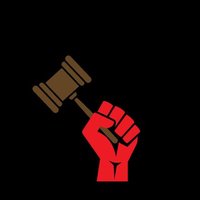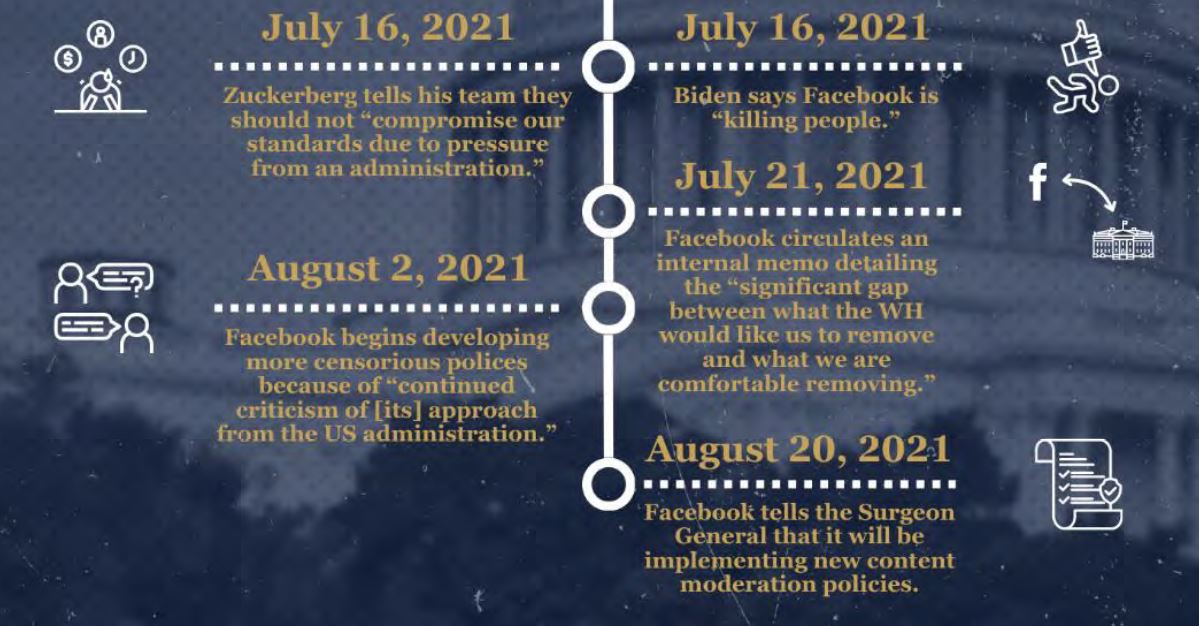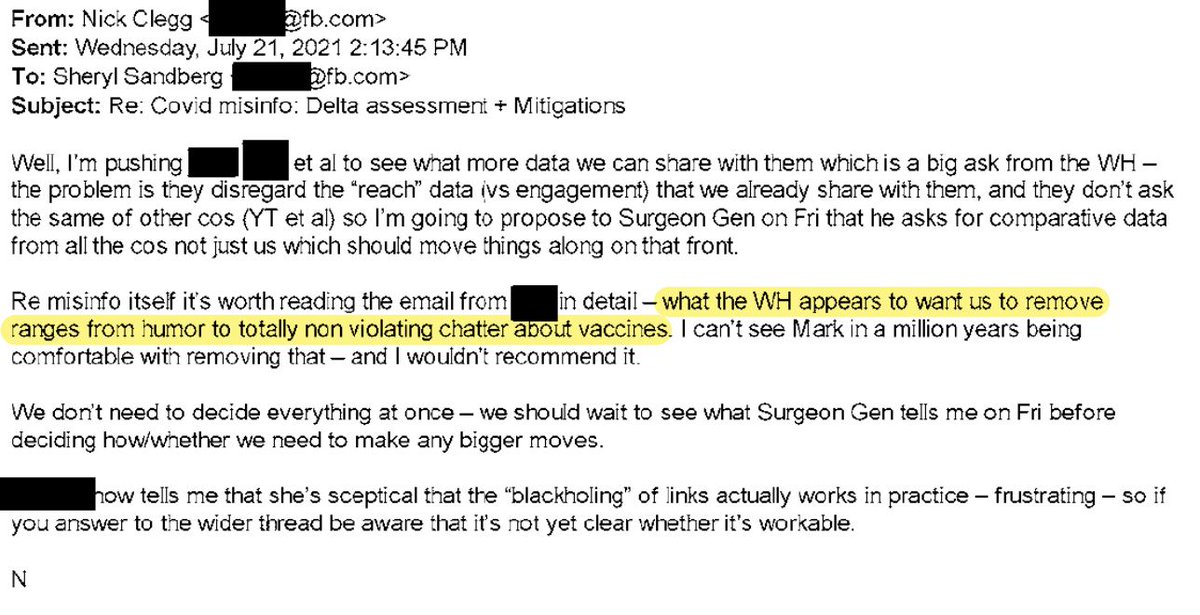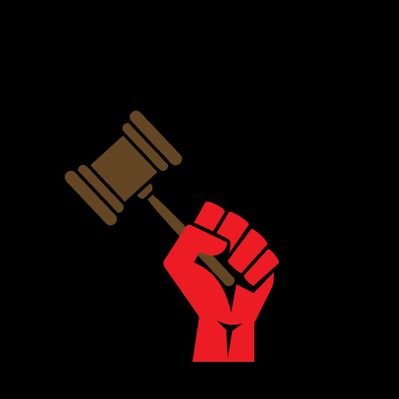One overlooked aspect of the critical period in July 2021 is the fact that changes to Section 230 were not an idle threat, as some would have you believe. Legislation was actually introduced that would have had profound affects on social media companies if passed. 

Following the President's infamous comments on July 16th, Facebook executives immediately expressed frustration over these statements and what was described as the White House "exerting policy pressure." Nick Clegg noted that they needed to "reset the working relationship."
A series of communications on July 21st laid out precisely what the White House was asking to be removed, including "totally non-violating chatter about vaccines." This seemingly undercuts the defense that only content in violation of its policies was at issue.
A detailed email that same evening reveals that the Surgeon General requested the Facebook remove even "true information" about vaccine side effects.
The White House also asked that "humor" be removed if it was "premised on the vaccine having side effects."
The White House also requested that Facebook and Instagram disable users across both platforms, and that all links to the "Disinfo Dozen" be removed.
Of significant note is the acknowledgment that there was "a significant gap" between between what the White House was requesting and what the company was comfortable removing. However, the company's tone seemingly changed shortly thereafter...
In the midst of this back and forth, Senator Klobuchar introduced the Health Misinformation Act of 2021 on July 22nd. This bill would have removed the Section 230 protections for social media companies that allowed "health misinformation" to proliferate on their platforms.
The following day, on July 23rd, internal communications indicate that Facebook was preparing a summary in which it states it had "expanded the group of false claims that we remove from our platform."
On July 24th, an email to Nick Clegg indicates that although the White House was wrong about the reach of the "Disinfo Dozen," Facebook was nevertheless considering adding them to a list of "Dangerous Orgs and Individuals" to bring it in line with those who wanted them banned.
On August 3rd, communications indicate that Facebook had tailored changes to the wishes of the White House, "rather than other problems we've been trying to get at longer term."
Whatever it's initial reservations may have been, Facebook seemingly relented in the midst of increasing pressure on or about the exact date a bill was introduced that would have crippled their Section 230 protections.
Whether this proposed legislation played a role in Facebook's about-face is an open question. But the timing is suspicious. And it coincides with increasing pressure from the White House, including what those inside Facebook described as "policy pressure."
Taken together, the evidence of pressure on social media platforms to adjust their policies is simply overwhelming, and to come to any other conclusion is to willingly ignore this evidence.
Missing some tweets in this thread? Or failed to load images or videos? You can try to .















